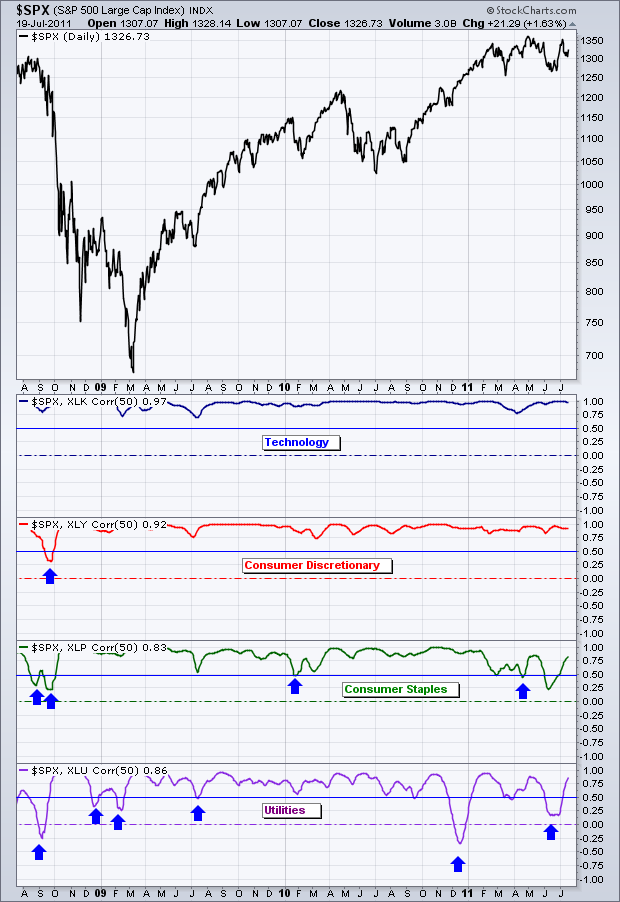The Difference Between Consumer Staples and Consumer Discretionary ETFs
Post on: 6 Апрель, 2015 No Comment

More Articles
One of the benefits offered by the large number of exchange-traded funds, or ETFs, is the ability to focus investments in specific sectors of the stock market. ETF shares trade on the stock market like shares of stock and allow investors to match stock index returns. ETF sponsor companies set up exchange-traded funds that hold the same stocks and match the performance of stock sector indexes. Consumer staples and consumer discretionary are two of the most commonly followed market sectors.
Stock Market Sectors
Standard & Poor’s and MSCI developed a widely used industry classification system called the Global Industry Classification Standard GICS which divides all companies into 10 major economic sectors. These market sectors are often used as the basis for sector-focused exchange-traded funds for both U.S. and international stocks. Besides consumer discretionary and consumer staples, the other sectors are energy, materials, industrials, health care, financials, information technology, telecommunications services and utilities. A stock will be classified into one of the these sectors and only one sector.
Consumer Staples Sector
Consumer staples companies are those that either produce or sell products that people buy on a regular basis. Consumer staples products include food, personal care items, beverages both alcoholic and nonalcoholic and tobacco products. Also included in this sector are the companies that have stores selling consumer staples such as supermarket chains. Examples of some of the largest consumer staples companies include Coca-Cola, Proctor & Gamble and Wal-Mart Stores. The stock shares of these types of companies would be owned by a consumer staples ETF.
Consumer Discretionary Sector
Consumer discretionary companies produce products that the public does not need to purchase. The discretionary companies cover almost every facet of retail sales and service not covered by the staples products. Types of consumer discretionary companies include fast-food restaurants, entertainment products and services, clothing and automobiles. Some of the largest companies in this sector include McDonald’s, Walt Disney, Amazon.com and Ford Motor Co. Think of the discretionary sector as companies producing consumer products that consumers buy because they want to and not because they need to.














